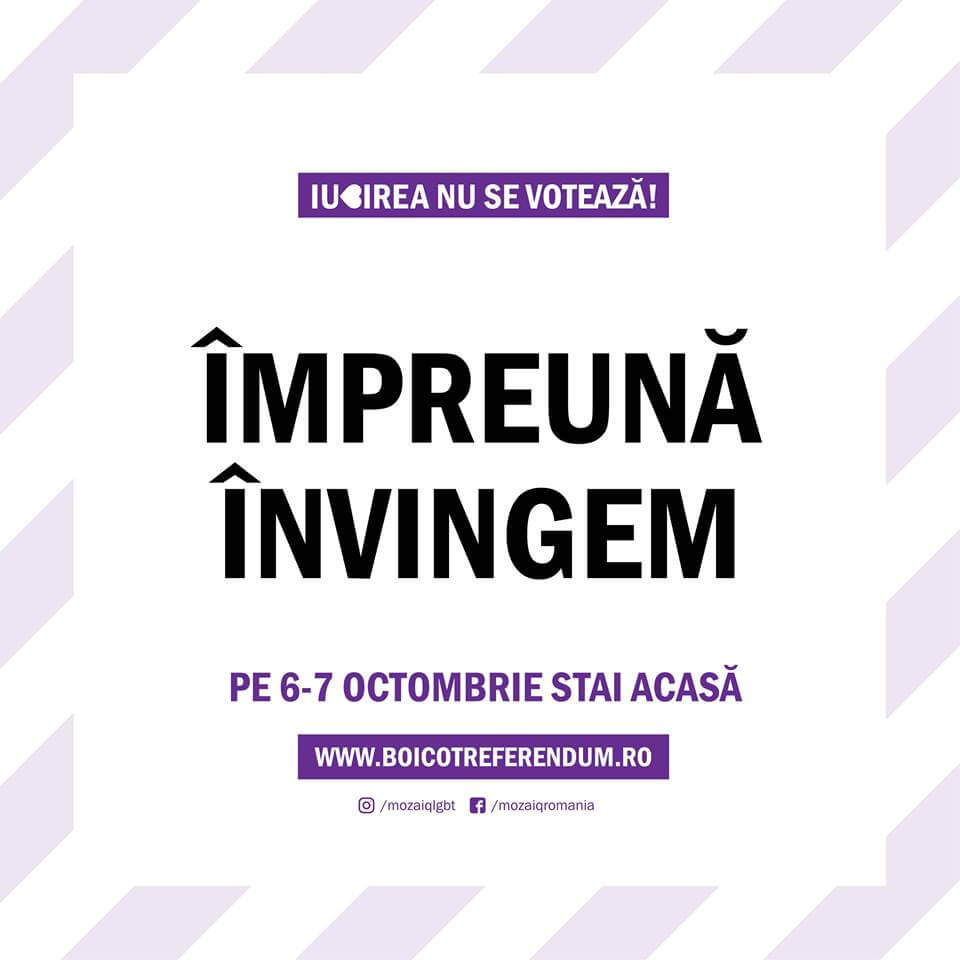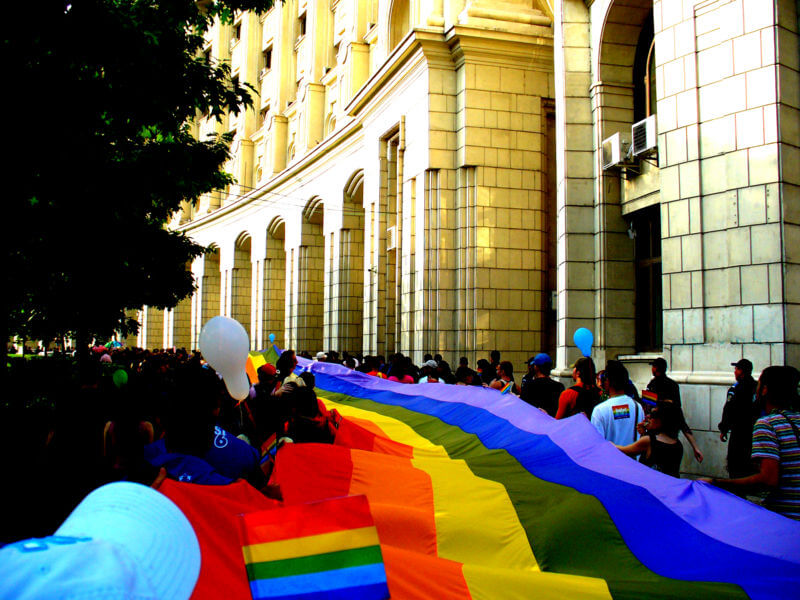“VICTORIE!” declared the Romanian LGBT rights organisation MozaiQ on their Facebook page last night, after a referendum this weekend to make legalising equal marriage even harder was lost following a nationwide boycott campaign. The two-day vote, on whether to amend the constitution’s definition of marriage to specify that it is between “a man and a woman” (rather than the current “two spouses” wording), failed to get the minimum 30% turnout required to be valid. Only 20.4% of voters showed up.
The referendum followed a Citizens’ Initiative petition and campaign by the ultra-conservative, anti-LGBT rights organisation Coalition for the Family which wanted to frustrate any future attempts to legalise equal marriage. One of their founders, Pavel Chirila, has called homosexuality “an import” from the West. Equal marriage is not currently legal in Romania; homosexuality was only decriminalised in 2001. If the Coalition had succeeded in amending the constitution’s gender-neutral wording, any campaign to change this would have become much harder.
A statement published by MozaiQ claimed the result shows “that Romanians have rejected hatred and division in society and have not identified with a political act aimed at stigmatising and discriminating against the LGBT community.” The result was hard-won. Ahead of the vote, activists reported an increase in homophobic and transphobic hate speech.
When I spoke to MozaiQ founding member Vlad Viski last year, he told me that his organisation had seen “an increase in violent physical attacks against LGBT people, with more people being beaten on the streets and coming to us.” In the last few weeks, the group said, LGBT people have “been demonised, put against the wall, made scapegoat for all Romania’s social problems.”
What can we learn from what happened? The first thing: human rights should not be up for popular vote. It’s unacceptable, as though minority and oppressed groups can have their rights gifted and taken away by the wider population.

This was the message behind MozaiQ’s campaign to boycott the referendum. Human rights are fundamental. The right to marriage is enshrined in the Universal Declaration of Human Rights. It’s not a debate to be voted on. The second is that minority and oppressed groups cannot be used as pawns to distract people from wider issues and discontent.
The timing of this referendum provided a government under attack from anti-corruption protests with a chance to deflect attention from their own problems. By allowing the referendum, MozaiQ argued, “the political class has shown that it is disconnected from the daily realities” of Romanian people. The third thing to note is that voters rejected outside interference in their democracy from international ultra-conservative anti-LGBT groups.
Since the launch of the Citizens’ Initiative, the Coalition for the Family has had support from the US-based Liberty Counsel and Alliance Defending Freedom(designated as anti-LGBT hate groups by the Southern Poverty Law Center). Liberty Counsel submitted a grossly homophobic amicus briefing on the supposed dangers of equal marriage – and supported a Romanian tour by Kim Davis, a US clerk briefly jailed for refusing to officiate same-sex marriages.
Speaking to Teodora Ion-Rotaru from LGBT rights group ACCEPT last year, she expressed resigned anger at how these groups “have no business” interfering in Romania. “Having failed to stop equal marriage from being introduced in the US, she said, “they come to countries that are a lot more vulnerable.” Viski echoed this sentiment, saying “these organisations see Eastern Europe as fertile ground to spread their anti-LGBT ideas.”
The ballot box defeat of their agenda suggests that outside groups determined to undermine LGBT rights around the world have been rejected in Romania. It also suggests that the influence of the Orthodox Church – whose Patriarch urged Christians to go and vote on Sunday – has been overestimated.
So what happens now? The referendum is over, but the fight for equality isn’t. Meanwhile, the anti-rights opposition remains a threat to progressive values.
“The battle for the LGBT community does not stop here,” said MozaiQ, which is campaigning for legalised civil partnerships, an end to homophobic bullying in schools and workplaces, and better support for those living with HIV and Aids. After hearing the result of their failed referendum, the Coalition for the Family’s supporters went on Facebook to call for it to form a political party.

For its part, the Coalition has reacted to its defeat by accusing the government of organising the vote in a “superficial and unprofessional manner” with “even basic information on [its] subject… not communicated to the Romanian public.”
It’s unclear at this stage what the Coalition will do next. But they are supported by powerful international forces, and won’t give up their fight for influence. At the same time, eastern and central Europe have seen a rise in populist, far right politics determined to target minority and oppressed people.
Last month, we saw the transnational dimension of this backlash against rights at the 2018 World Congress of Families in neighbouring Moldova, attended by hateful US and Russian groups as well as those from other countries.
So, while LGBT activists and their supporters can and should celebrate VICTORIE today, no one who believes in equality can rest on their laurels. Homophobic forces were beaten this weekend, but the battle continues.
***
This article was first published in openDemocracy. It has been published here with permission.
![Political Critique [DISCONTINUED]](http://politicalcritique.org/wp-content/uploads/2015/09/Political-Critique-LOGO.png)
![Political Critique [DISCONTINUED]](http://politicalcritique.org/wp-content/uploads/2015/09/Political-Critique-LOGO-2.png)